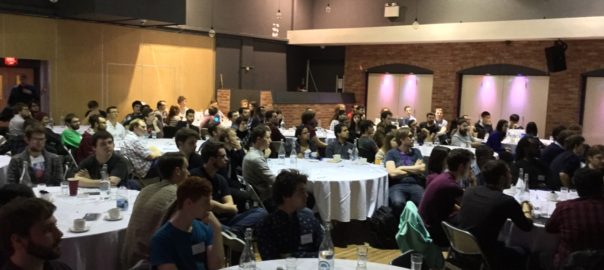GRADnet Moving Forward for 2nd Year PGR Students
Who: 2nd Year Physics PhD students. All SEPnet Departments expect all students to attend.
When: 18 October 2017, 10.30-16.30
Where: Park Crescent Conference Centre, 229 Great Portland Street, London, W1W 5PN.
Deadline to register is 11 October 2017.
Numbers: This event is strongly recommended by all SEPnet partner Departments. Circa 100 students are expected to attend. Students are to sign up for two workshops on arrival and attend one in the morning and one in the afternoon.
What: A one-day training session, an opportunity to meet fellow researchers from across the network and to participate in two from five short workshops designed to get you started in key areas of activity.
- Creating impact: Thinking about how to commercialise your research, or an idea, and turn it into an exploitable product or service? Perhaps you are interested in a career in business or knowing how businesses are created. Would you like to start thinking like an entrepreneur, or as someone that wants to change the world through innovation?
- How to write a successful Fellowship Application: This workshop is aimed at those students who are considering an academic career. Most often this starts with a period of postdoctoral study during which the researcher is supported by a Fellowship. The workshop focusses on what is required to prepare a successful research council or similar fellowship application.
- Research data management: Research data management is increasingly important in all fields of research. Presented by Research Council and University experts, this workshop asks what is required for good data management and examines some of the common problems and issues that researchers face.
- Unconscious Bias: Almost no-one thinks that they are unconsciously biased. Yet white males and many non-white students perform less well in their degrees than white females – it could be due to bias in assessment systems – while females rarely get to the top of their profession – is this bias in the promotion systems? Something is going wrong if we don’t appoint and promote the best person for the job.
- Writing better software for research: Whether you have 10 lines of shell script, 100 lines of R, or 10,000 lines of C, the quality of your research, and reproducibility of your results, depends upon the quality of your code. In this course, Mike Jackson from the EPCC (formerly Edinburgh Parallel Computing Centre) explores the qualities of good code, discusses blockers, and presents practical tools and techniques that help you to write better code, in less time, and with less effort.
Travel expenses and refreshments are covered by SEPnet.
To Register sign on to the VRE and look here.

